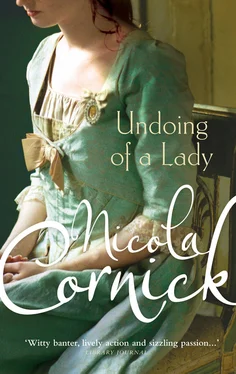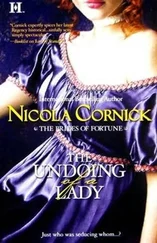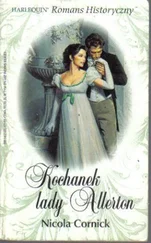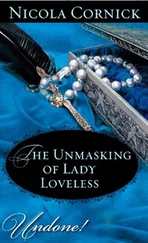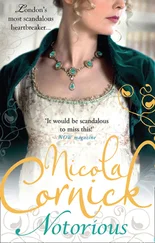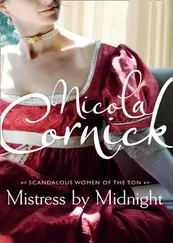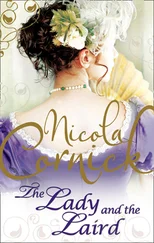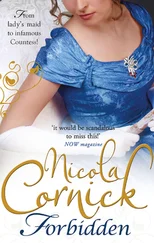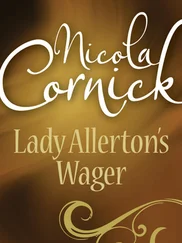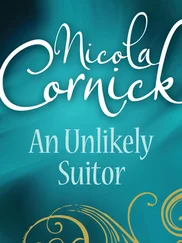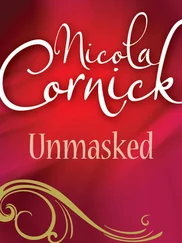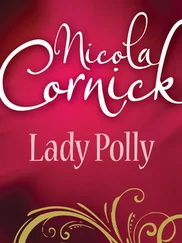Flora took it from him and looked at it dubiously. After a moment Lowell laughed and unstoppered it for her and passed it back. She placed her lips where his had been and drank deeply. The liquid was cold and deliriously refceshing and tasted of apples. She swallowed some more and saw that he was watching her with the laughter still lurking in his eyes. She felt self-conscious then and passed the bottle back to him, wondering if she should have wiped the neck first.
“Thank you,” she said.
“Miss Minchin, isn’t it?” Lowell said. “Flora?”
She liked the way that he said her name. It sounded very pretty.
She nodded. “You are Lowell Lister.”
He sketched an ironic bow. “What are you doing up here alone, Flora?” he said.
“I wanted to think,” Flora said. She was starting to feel rather odd. The sun was filtering through the green leaves of the ash tree beside the wall and dancing in patterns across her eyelids. She wanted to sit down and rest her heavy head against the solid trunk. She looked suspiciously at the flask that was still in Lowell’s hand.
“Is…Is that…cider?” She had heard that cider was dangerous.
Lowell smiled. “It is. Would you like some more?”
“No, thank you,” Flora said. “You should have stopped me. Cider isn’t a suitable beverage for a lady.”
Lowell laughed. “Why should I stop you? Can’t you decide for yourself what it is that you want?”
Flora looked at him. His eyes were the deepest blue but flecked with specks of green and gold and fringed with the blackest lashes.
“Of course I can decide,” she said, offended. She sat down on the bank. “I canceled my wedding today. That was my decision.”
Lowell’s eyes widened. He nodded slowly and sat down beside her. “Was that what you wanted to think about when you came up here?” he asked.
Flora looked sideways at him. His sleeves were rolled up and his forearm, resting beside hers, was tanned dark brown and sprinkled with hairs that gleamed gold in the sun. Flora’s throat felt dry. Perhaps, she thought, I will have some more cider after all.
“Yes,” she said. “I wanted to think about my wedding and about…other things, too.”
“Do you want to talk about it?” Lowell said.
“Yes,” Flora said, looking at him and realizing that she wanted to talk to him very much indeed. “Yes, please.”
“DEAREST LADY ELIZABETH!” Lady Wheeler gushed. “Such a pleasure to have you with us tonight! So unexpected but so very welcome!” She wafted about Lizzie like an enormous moth, all fluttery arms and flapping draperies. Lizzie hoped that she would not go too near the fire or there might be a disaster.
“You never normally grace our functions,” Lady Wheeler continued. “This is most magnanimous of you!”
“Not at all,” Lizzie murmured. Many of the residents of Fortune’s Folly considered her to be a terrible snob who seldom condescended to join in their events because she was an earl’s daughter and therefore too good for them, but it was in fact because so many people toadied to her so shamelessly that Lizzie tended to avoid their dinners and balls. That, and the fact that Sir Montague neglected his role of guardian so thoroughly and did not give a damn about what she did or did not do.
Lizzie had not in fact had any intention of accompanying her brothers to Lady Wheeler’s dinner that night. She barely spoke to Tom these days, despising him for his treatment of Lydia, and she found Monty little better since all he seemed to do was drink like a fish and plan his next assault on the finances of his villagers. But when Lady Wheeler had called to deliver the invitation in person, her daughter, Mary, had grabbed Lizzie’s arm and dragged her into a side room and begged her to attend.
“You know how much Mama and Papa despise me since Lord Armitage jilted me,” Mary had said, her brown eyes pleading. “They are ready to countenance any suitor now and I cannot bear it. I am sure they will force me to marry Tom or even Sir Montague himself if he makes an offer. I feel like a prize heifer—or perhaps not even the prize one but the one left over at the end of the market that no one wants to buy.”
Lizzie had privately thought that Mary looked rather like a heifer as well, with her big brown cow eyes, but for once she had been kind enough not to make the comparison aloud. “Well, I doubt that you need to worry about Monty,” she had said, trying to sound comforting. “He never had much desire to wed once he had realized he could fleece everyone of their fortunes in other ways. Tom, though—” She had sighed, for it was quite true that Tom would probably marry anything rich in a skirt. He had already called on Flora Minchin as soon as he had heard she was free.
“Please come on Tuesday night,” Mary had pleaded again. “I need you to protect me, Lizzie!”
Lizzie had grudgingly agreed. She had felt sorry for Mary, who had lost her fiancé somewhat abruptly when he had run off with a courtesan. Mary had been hopelessly in love with the worthless Stephen Armitage and his defection had hit her terribly hard. In Lizzie’s opinion Armitage had been a scoundrel and Mary was a fool for languishing with love for him, but that did not make Mary’s pain any the less. With the insight that her feelings for Nat had given her Lizzie could see how much Mary was suffering.
At least she was unlikely to meet Nat at the Wheelers’s house, she thought, as she followed Lady Wheeler into the salon. The Wheelers did not tend to socialize with her set so neither Nat nor any of her other close friends were likely to be present, which was a blessing because it gave her the breathing space she needed. It enabled her to develop the pretense that she was heart whole, helped her to build a new carapace, little by little, step by step, so that she could forget what had happened with Nat and reinvent Lizzie Scarlet, who looked the same on the outside but felt so vulnerable on the inside because she had made a terrible mistake that had rocked the foundations of her world.
Lizzie had not seen Nat for over a week. After she had run away from him that day in Fortune’s Folly, he had called at the Hall every day for five days. Lizzie had pleaded indisposition twice, lied and said that she was not at home a third time and had hidden on the fourth and fifth occasions. Finally Nat had ceased to call and Lizzie had heard from the servants’ gossip that he had been summoned to Water House for a few days because his father was ill. She had felt hugely relieved. She was still quite unable to face him with any composure, her feelings raw, the hurt of loving him and mistaking his feelings for her so painful that it was barely beginning to ease.
She had been less happy to refuse to see her friend Alice Vickery. Alice, too, had called on her several times and Lizzie had wondered if Nat had asked her to visit. She doubted it; Nat would not have told anyone what had happened, of that she was sure. Lizzie missed her friends and hated denying them but all she wanted to do was curl up and hide from anyone who knew her. Alice knew her so well. She would instantly be able to tell that there was something wrong, no matter how much Lizzie pretended. She could not let her friends get close, for it was not in her nature to confide. She had always nursed her grief alone because for most of her life there had been no one to help her bear it. Nat, whom she would once have turned to in her misery and loneliness, was forbidden to her now.
How accommodating Lady Wheeler was, Lizzie thought now, as her hostess led her, along with Monty and Tom, into the salon. Lady Wheeler had disapproved violently of her the week before and called her a hoyden, yet now it seemed she had quite forgotten her censure because Lizzie was still an earl’s daughter, very rich, beautiful and a valued addition to any dinner party. The Wheelers had a debauched son—George—who was hanging out for a rich wife. Lizzie knew that such considerations would far outweigh any criticisms of her behavior. Indeed if she decided to bestow her fortune on George Wheeler her conduct would be applauded as spirited rather than condemned as wild. And sure enough Lizzie could see George waiting to greet her, with his friend Stephen Beynon at his side, and there was Mary, looking rabbit-scared, and a few other of Fortune’s Folly’s gentry and…
Читать дальше
